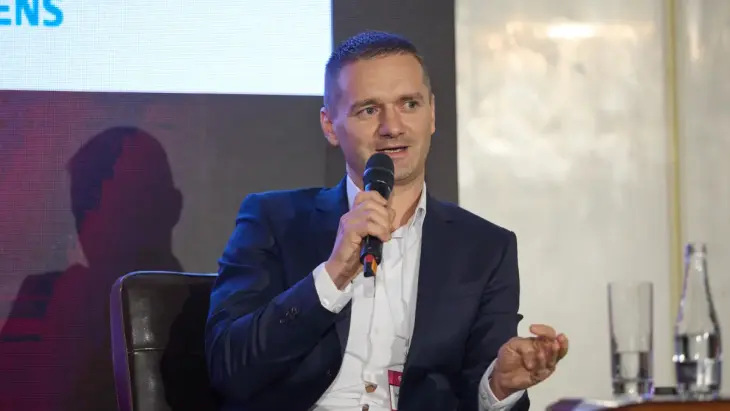The German technology group Siemens assumes all the requirements related to the energy transition and prepares “overwhelming” investments in the development of hardware and software, as well as in the aggregation of digital solutions in a unique concept that will serve the world market. However, Europe’s plans to become a carbon neutral continent raise great technical challenges that should not be underestimated.
“Siemens assumes all these requirements and invests overwhelmingly to redefine itself as a structure and to strengthen the new strategy included in the Siemens Xcelerator concept, i.e. a current and continuously developing product portfolio of hardware and software, digitalization, IoT- ready. It requires a strong network of partners to build on Siemens solutions and make them available, standardized, as-a-service in a market place with global accessibility”, said Andrei Secelean, Head of Smart Infrastructure at Siemens Romania, during the DigitALL 2023 conference, organized by Energynomics.
By 2050, the number of inhabitants of the planet will increase to 10 billion, and two-thirds of them will live in urban areas, spending 90% of their time in buildings. Buildings consume approximately 40% of the total energy and currently 75% of them are “absolutely totally inefficient” from an energy point of view.
At the same time, distributed energy sources will increase sevenfold by 2030, with 35 million such sources added annually to the power grid. This advance will increase the risk of blackouts because the current network was not configured for such consumption. Last but not least, 60% of passenger cars sold by 2040 will be electric, and this will put additional pressure on the electricity grid.
“In Germany alone, congestion management expenses have increased tenfold in the last ten years, up to 2.3 billion euros, and in these ten years there has not been this upward curve of distributed energy sources,” Secelean said.
In order to achieve the assumed objectives, there is a need for innovation, new open applications on which others can be built, but also new business-as-a-service models.
Thus, the role of utility companies will change profoundly and they will have to be much more active and contribute to the stabilization of the system. Moreover, the decarbonisation objectives of the industry, in order to reach the targets of the Green Deal, presuppose the electrification of all sectors of activity, which will lead to a doubling of electricity demand and even a tripling of it at peak times.
“Now we could say that in the low voltage network of the distributors, the lights are kind of off. There is no consistent transparency, and the integration of these new [renewable and distributed, ne] sources is done there. We don’t need to be specialists to realize that very large investments are needed in green energy generation, in the transport and distribution infrastructure as we know it, supplemented by substantial investments in software and digitalization of networks to be able to manage this complexity of a highly decentralized networks with many prosumers, bidirectional flows, and unpredictable generation and consumption,” Secelean added.
According to Secelean, Siemens Romania, an organization with almost 2,400 employees, intends to expand its team and is looking for specialists in the electrification and automation of the energy sector.
The DigitALL 2023 conference was organized by Energynomics, in partnership with the CIO Council and with the support of our partners Eaton Electric, Huawei, NextGen, Schneider Electric, Siemens.
